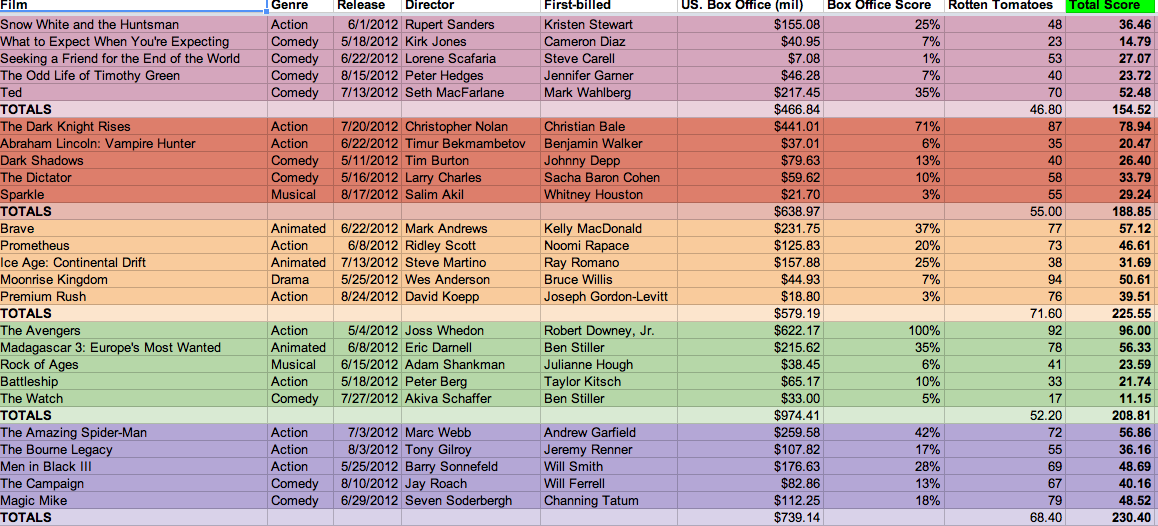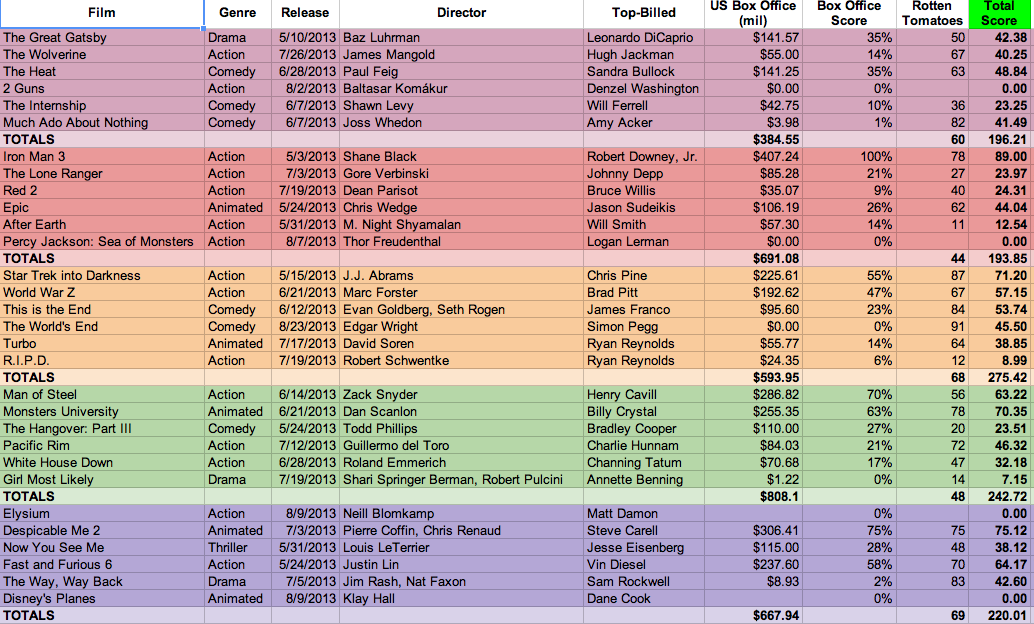Media Diet: 2017
Because I am a broken person, I track every book I read and movie I watch. Astonishingly, despite finishing my second graduate degree this year, raising an infant who has become a toddler, and the usual 60-hour work weeks, I managed to read more books and watch more movies than I have in a long time. Since I have so much less time available to me, I value the time I do have differently. As my friend Paul Cumbo wrote on this topic:
The most striking discovery I’ve made since becoming a dad is the shifting economics of time and productivity... A sneaky little irony about parenthood is that you suddenly have less time but you get more done than ever before. Since becoming a dad, I’ve become a lot more productive. And the irony here is that I have far less time to myself.
For me, that means that when I'm finally done for the night, I tend not to stare mindlessly at my phone, reading whatever new horrors Twitter presents. Instead, I more consciously choose to read or watch a movie.
So below are some of my favorites from 2017 (whether or not they were released then):
Movies
According to Letterboxd, I watched 46 movies this year (which doesn't count all those times I'd sit down and see The Dark Knight or A Few Good Men on TV and watch until the end). Some of the highlights:
- John Wick and John Wick 2: I watched the first movie when I was home with a fever. What a fun, classic action movie–and the sequel is just as good.
- Logan, Guardians of the Galaxy, Vol. 2, Wonder Woman, Spider-Man: Homecoming, and Thor: Ragnarok: The annual slate of comic book movies had some pleasant surprises (Logan, Thor, and Wonder Woman), as well as some reliable, if unremarkable, hits (Guardians and Spider-Man). While I think Wonder Woman was overrated by most, anything new is good.
- Children of Men: I'd seen this movie before, but not in ten years. Watching it again in 2017, with everything going on in the world and being a new parent, it felt like a brand new experience (though the cinematography was just as gorgeous as I remembered).
- Dunkirk: Christopher Nolan's movies had become a bit overstuffed lately, at least in terms of plot. The simplicity of this story really let the craftsmanship of the film shine through.
- The Vietnam War: This Ken Burns documentary is just as good as everybody has said.
- Star Wars: The Last Jedi: I could write a whole post about this, but the world doesn't need that right now. I'll just say that this is a Star Wars movie that really tries to be about something–and I think it succeeds marvelously.
- Get Out: Another movie that tells a taut story well. Deserving of its inclusion on all the end-of-year lists.
- Lady Bird: Set in an all-girls Catholic high school in 2003 (I graduated from a Catholic high school in 2001 and now work at an all-girls school), this movie got just about everything right.
- Honorable mention movies I saw either again or for the first time in 2017 that I enjoyed or made me think: Silence, Pulp Fiction, No Country for Old Men, Baby Driver, Logan Lucky
Books
I somehow managed to read almost 12,000 pages in 2017. That's a lot, even for me. The ones that stuck with me:
Fiction and comics
- Irredeemable, Mark Waid: I devoured this series from Mark Waid. A fun subversion of the usual tropes: what if Superman turned evil?
- Saga, Book 2, Brian K. Vaughan & Fiona Staples: Still the best comic series out there, and one of few that I still look forward to monthly.
- The Pillars of the Earth, Ken Follett: I'd been scared away by the sheer size of the book, but I was looking for something long I could really sink my teeth into, and this didn't disappoint. For such an expansive work, it actually focuses on relatively few characters, so by the end I felt very invested in them.
- The Song of Achilles, Madeline Miller: I loved everything about this novel, and can't wait to read Circe. Rare is the writer in this genre of historical fiction who has a grasp of the history/mythology and is also a strong writer.
Non-Fiction
- Reinventing Organizations: A Guide to Creating Organizations Inspired by the Next Stage of Human Consciousness, Frederic Laloux: This book deserves its own post. I find myself thinking about the ideas in this book far more than any other I've read recently, and I even purchased a copy for my school's President and Principal.
- The Rise and Fall of the Third Reich, William L. Shirer: Another book whose length scared me away for a long time. Despite being a bit dated, its combination of history, research, and a journalist's first-hand account was eminently readable and powerful.
- What This Cruel War Was Over, Chandra Manning: The Civil War was about slavery. This shouldn't be a fact that was still debated in 2017, but it was. Manning's research makes it pretty clear: the Civil War was fought over slavery.
- Evicted: Poverty and Profit in the American City, Matthew Desmond: A powerful account of the ways that people can be trapped in a cycle of poverty by the housing system–this made me angry.
- An American Sickness: How Healthcare Became Big Business and How You Can Take It Back, Elisabeth Rosenthal: A powerful account of the ways that the American healthcare system also traps people in a cycle of poverty, usually for one simple reason–greed. This book also made me angry.



